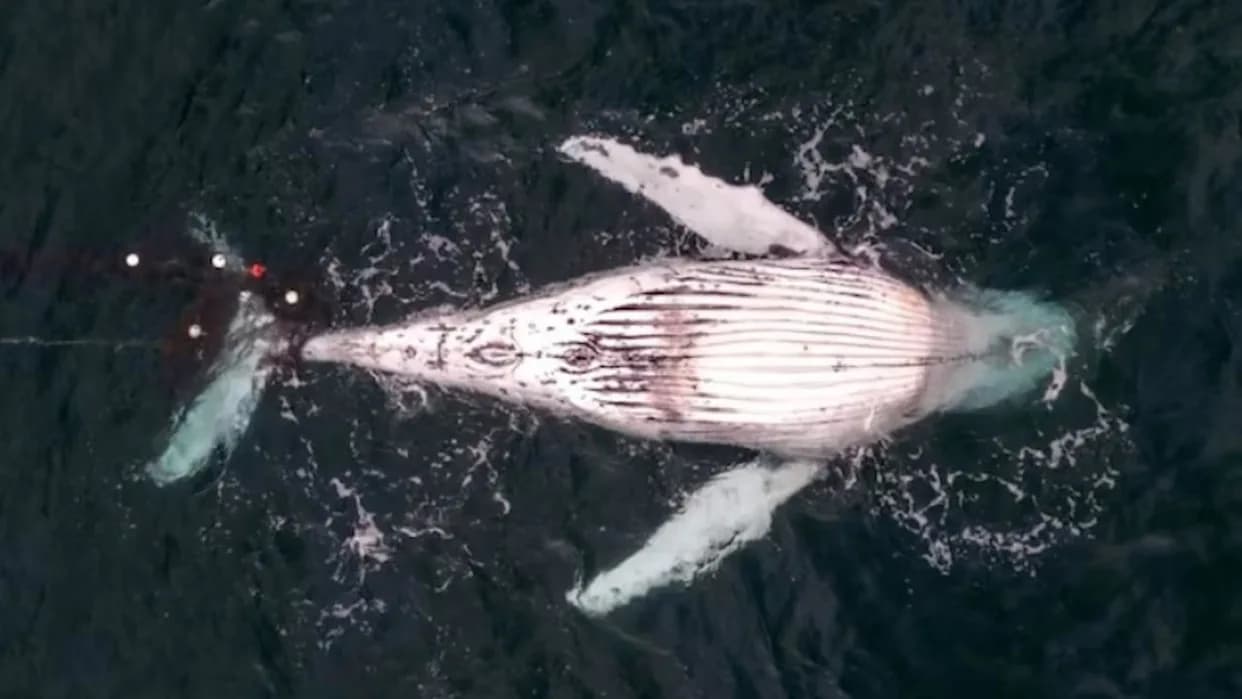We're loading the full news article for you. This includes the article content, images, author information, and related articles.
The death of a juvenile humpback whale in Australia's controversial shark nets highlights a growing global conflict between coastal safety measures and marine conservation, a pertinent issue for Kenyan waters where migrating whales are a key tourist attraction.

SYDNEY, AUSTRALIA – A two-year-old humpback whale was found dead on Tuesday, October 28, 2025, after becoming entangled in a shark net off the coast of New South Wales (NSW), north of Wollongong. The incident, which occurred during the whale's southern migration to Antarctica, is the first confirmed fatality out of 15 whale entanglements reported on Australia's east coast this year and has intensified calls from conservation groups to abolish the state's decades-old shark mitigation program.
The eight-metre juvenile was discovered by shark meshing contractors during a routine morning inspection between Coledale and Wombarra. According to a spokesperson for the NSW Department of Primary Industries and Regional Development (DPIRD), no prior entanglement report had been received for this specific whale. Rescue teams, including the NSW National Parks and Wildlife Service (NPWS) and the Organisation for the Rescue and Research of Cetaceans in Australia (ORRCA), were dispatched but found the whale already deceased with netting wrapped around its tail and side fin. Efforts to tow the carcass to shore for a necropsy were hampered by unsafe sea conditions.
The NSW Shark Meshing Program, which has been in place since 1937, involves the deployment of 51 nets along the state's coastline to reduce the risk of shark attacks on beachgoers. However, critics have long argued that the nets are ineffective and indiscriminately kill a wide range of marine life. Marine biologist Lawrence Chlebeck from Humane World for Animals stated that scientists have found no discernible difference in shark bite risk between netted and non-netted beaches. In fact, some experts suggest the nets can attract sharks by trapping other animals, effectively acting as a “dinner bell.”
Conservation organizations like Sea Shepherd Australia have documented the extensive bycatch, which includes dolphins, turtles, rays, and non-target shark species. Data from Queensland's similar program in 2024 showed 1,641 animals were caught, with over 980 killed, including 22 whales and dolphins. Dr. Olaf Meynecke, a marine mammal researcher at Griffith University, noted that juvenile whales are particularly vulnerable as they are often unaware of the dangers posed by the nets.
While this incident occurred thousands of kilometres away, it resonates with marine conservation challenges in East Africa. Kenya's coast is a vital migration corridor and breeding ground for humpback whales journeying from Antarctica between July and October each year. This annual spectacle supports a burgeoning whale-watching tourism industry in locations like Watamu, Kilifi, and Diani, underscoring the economic and ecological importance of these marine giants to the nation.
The Australian whale's death serves as a stark reminder of the lethal threat posed by certain types of fishing gear. The problem of “ghost fishing,” where lost or abandoned nets continue to trap and kill marine life, is a significant global issue. A 2020 UN report highlighted the growing danger from durable synthetic fishing gear, which can persist in the marine environment for decades. Although Kenya does not employ shark nets for bather protection, the broader issue of bycatch from illegal and unregulated fishing remains a threat to its marine ecosystems, affecting species such as turtles, dolphins, and sharks.
The tragedy has renewed the push for non-lethal alternatives to shark nets. Technologically advanced solutions are being trialled and implemented in various parts of Australia. These include SMART (Shark-Management-Alert-in-Real-Time) drumlines that alert authorities when an animal is caught, allowing for tagging and release. Other methods include drone surveillance, which spotted over 1,000 sharks off the NSW coast last year, real-time alert apps like Shark Smart, personal deterrent devices, and eco-friendly barriers that mimic kelp forests.
The Australian Greens party and conservation groups are urging the government to invest more in these modern technologies and to remove the legal exemptions that permit state-run shark culling programs. As NSW Greens MP Cate Faehrmann stated, the whale's death was “totally preventable.” The incident puts pressure on the NSW government, which had paused a planned trial to remove nets at three beaches following a fatal shark attack earlier in the year, even though a net was in place at the time of that incident. The outcome of this debate in Australia could influence coastal management policies worldwide, including in the Western Indian Ocean, as nations seek to balance human safety with the urgent need to protect vulnerable marine biodiversity.
Keep the conversation in one place—threads here stay linked to the story and in the forums.
Other hot threads
E-sports and Gaming Community in Kenya
Active 8 months ago
The Role of Technology in Modern Agriculture (AgriTech)
Active 8 months ago
Popular Recreational Activities Across Counties
Active 8 months ago
Investing in Youth Sports Development Programs
Active 8 months ago